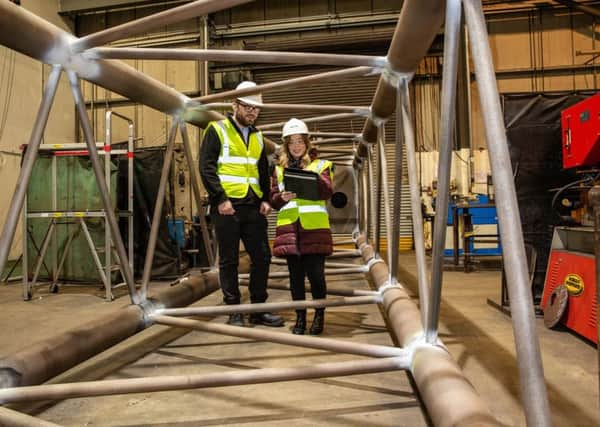Professor John Harper: Business graduates to a new model of learning


In Higher Education, it is crucial to respond to the skills needs of learners and create accessible learning opportunities focussing on preparing current and future generations of students for the changing working environment.
There is now, more than ever, a significant emphasis on the workplace as an educational environment to enrich vocational learning, support learners in sustaining careers and create a skills pipeline to meet future needs and jobs in growing fields.
Advertisement
Hide AdAdvertisement
Hide AdThis professional-focused education is one of Robert Gordon University’s distinctive features. The university has established extensive engagement with industry and professional bodies and work-based learning is an integral part of RGU’s teaching. Close collaboration with industry allows the university to develop a demand-led curriculum tailored to the needs of employers.


To continue to meet the shifting educational environment, and ever-changing industry and skills needs, RGU continues to implement innovation in industry-focused teaching and professional development, and is proud to continue to lead the way in work-based learning, taking the university to the workplace with a suite of graduate apprenticeships (GAs).
Graduate apprenticeships have been developed by Skills Development Scotland (SDS) in partnership with employers, universities and professional bodies to provide work-based learning degrees, creating stronger links between industry and education, and upskilling workforces for the future.
RGU was one of the first universities in Scotland to deliver graduate apprenticeships and continues to be at the forefront of work-based learning, having expanded its offering across a range of disciplines in construction, engineering, business management and IT.
Recognising the value of work-based learning, RGU’s graduate apprenticeships extend access to degree-level studying across Scotland, while minimising time out of the workforce. They were designed with the aim of addressing national skills shortages in key areas and to enable employers to shape their workforce in line with business demands while offering a high value, low cost option to upskill staff.
The university’s innovative model reflects the importance of engaging employers to design the degrees based on the value of the workplace as a learning environment.
The graduate apprentices benefit from a new type of learning, putting what they have learned into practice immediately with support from both their employer and the university. The employers also benefit in a number of ways, from being able to plan for their skills needs in a new way and develop existing staff with emerging and transferable skill sets, to improving employee retention by supporting and investing in their development.
Partnering with companies across the north-east and more widely has allowed us to co-develop and support this new model of learning. A blended learning approach, supported by our virtual learning environment, with online lectures, discussion forums and access to course materials, is used. This is complimented by a number of on-campus sessions, where students can exchange ideas and experiences with their peer group and tutors.
Advertisement
Hide AdAdvertisement
Hide AdBy repositioning the workplace as a learning environment, the university has delivered successful graduate apprenticeships spread across a wide geographical area, from the North-East to the Highlands and Islands and the Central Belt. We have engaged with a wide range of companies, from large multinationals to small organisations, across both the private and public sector as a result of the flexibility in our approach.
As a transformational work-based learning initiative, graduate apprenticeships fit with RGU’s strengths and ethos, showcasing our ongoing commitment to develop the workforces across Scotland with the essential expertise, tools and innovative skills to navigate changing working landscapes and fulfil the needs of industry.
Professor John Harper, Principal, Robert Gordon University